Humans
Sign up for our newsletter
We summarize the week's scientific breakthroughs every Thursday.
-
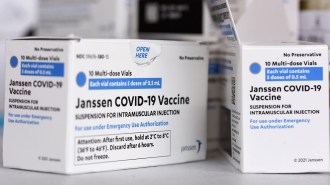 Health & Medicine
Health & MedicineFDA and CDC OK resuming J&J COVID-19 shots paused over rare clot concerns
The single-dose vaccine carries a low risk of rare blood clots in women under 50, but experts say its benefits outweigh that risk.
-
 Health & Medicine
Health & MedicineExperts predict U.S. COVID-19 cases will dip in summer but surge in winter
Masks, vaccines and coronavirus variants could all affect how bad a predicted winter surge gets.
-
 Health & Medicine
Health & MedicineCapturing the sense of touch could upgrade prosthetics and our digital lives
Haptics researchers are working on ways to add touch to virtual reality, online shopping, telemedicine and advanced artificial limbs.
-
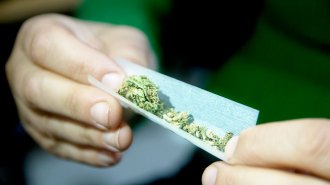 Health & Medicine
Health & Medicine50 years ago, scientists claimed marijuana threatened teens’ mental health
In the 1970s, scientists linked pot use to mental health woes in teens. Such concerns have helped keep the drug illegal for teens for 50 years.
By Mike Denison -
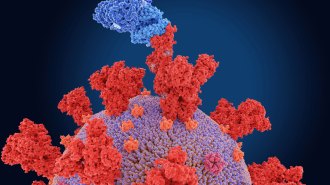 Health & Medicine
Health & MedicineHere’s what we know about B.1.1.7, the U.S.’s dominant coronavirus strain
Studies show the variant is more contagious and may cause more severe COVID-19 overall. But vaccines still work against B.1.1.7.
-
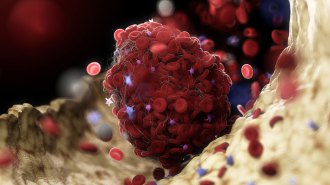 Health & Medicine
Health & MedicinePeople with rare blood clots after a COVID-19 jab share an uncommon immune response
AstraZeneca’s and J&J’s shots are linked to antibodies that spark clots. Knowing that lets doctors ID cases and get patients the right treatment.
-
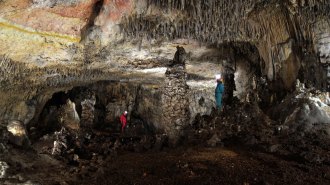 Humans
HumansNeandertal DNA from cave mud shows two waves of migration across Eurasia
Genetic material left behind in sediments reveals new details about how ancient humans once spread across the continent.
-
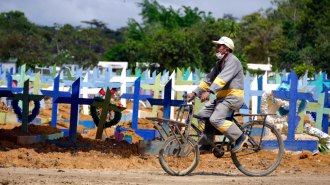 Health & Medicine
Health & MedicineThe P.1 coronavirus variant is twice as transmissible as earlier strains
The variant first found in Brazil can evade some immunity from previous COVID-19 infections, making reinfections a possibility.
-
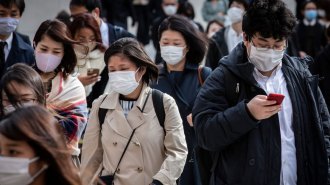 Anthropology
AnthropologyA coronavirus epidemic may have hit East Asia about 25,000 years ago
An ancient viral outbreak may have left a genetic mark in East Asians that possibly influences their responses to the virus that causes COVID-19.
By Bruce Bower -
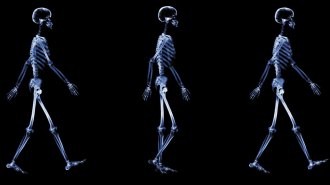 Anthropology
Anthropology‘First Steps’ shows how bipedalism led humans down a strange evolutionary path
In a new book, a paleoanthropologist argues that walking upright has had profound effects on human anatomy and behavior.
By Riley Black -
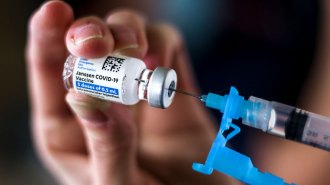 Health & Medicine
Health & MedicineU.S. pauses J&J vaccine rollout after 6 people of 6.8 million get rare blood clots
The COVID-19 vaccine’s pause is out of abundance of caution, experts say. The potentially deadly clots appear to be “extremely rare.”
-
 Neuroscience
NeuroscienceSurprisingly, humans recognize joyful screams faster than fearful screams
Scientists believed we evolved to respond to alarming screams faster than non-alarming ones, but experiments show our brains may be wired differently.